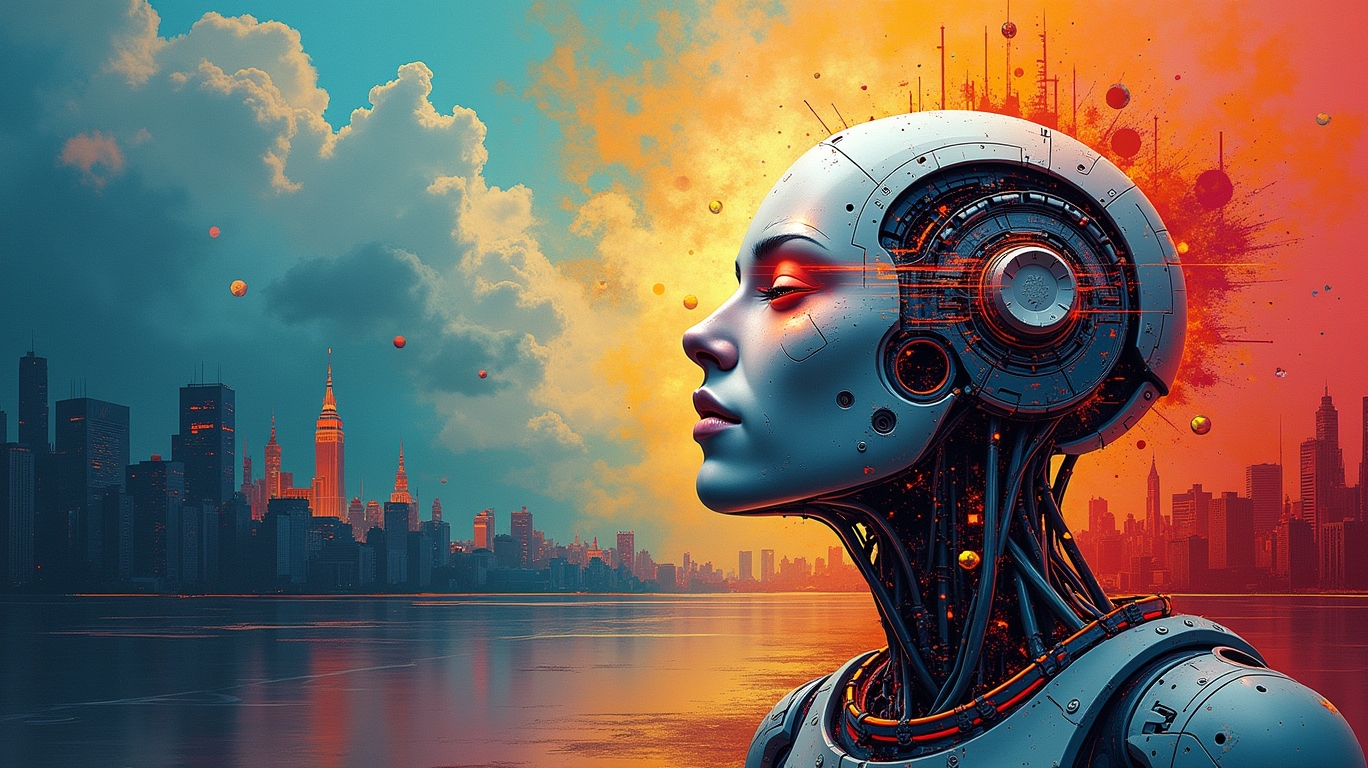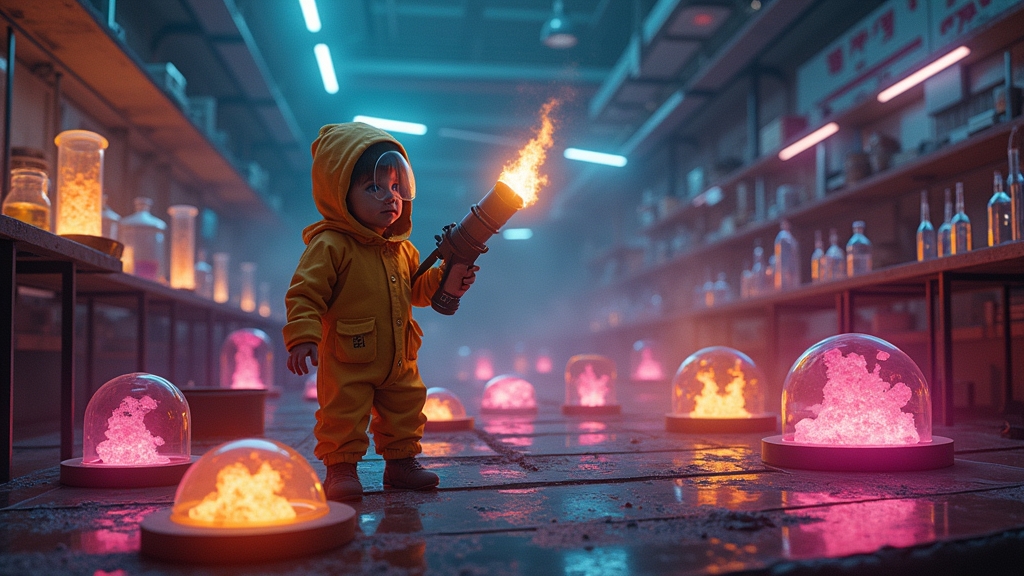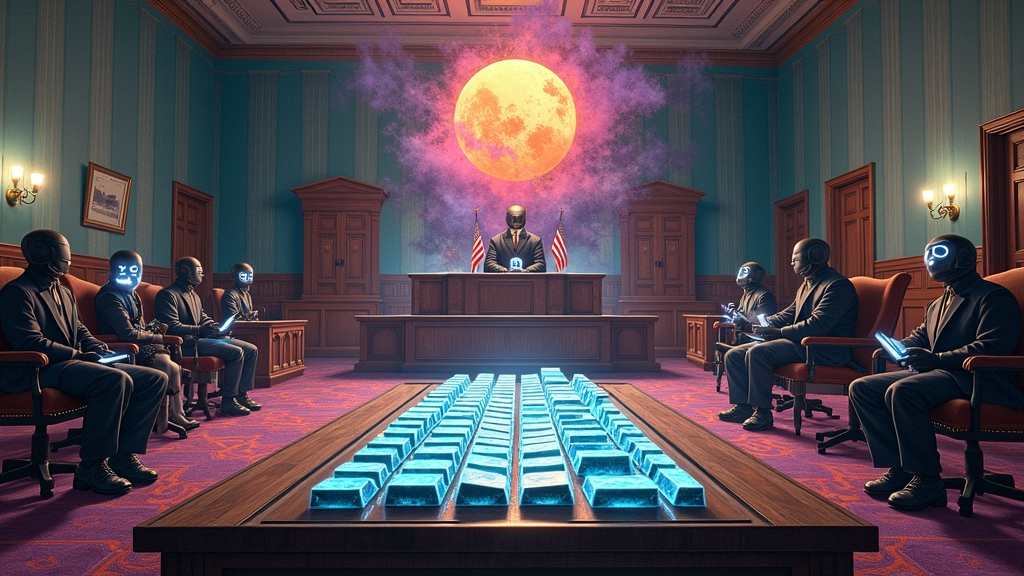“Groundbreaking” AI Report Shocks World By Confirming Water Is, In Fact, Wet
The International AI Safety Report, commissioned last year in a whirlwind of bureaucratic urgency and unhinged hand-wringing, has dropped like a 300-page stone into the collective laps of policymakers, tech bros, and environmentalists alike. The verdict? Artificial intelligence is doing what everyone with a pulse and a Wi-Fi password already knew: making everything both more exciting and more terrifying, simultaneously proving humanity’s ingenuity and our deeply sustainable knack for f#&%ing things up.
Among its dazzling insights, the report notes that AI might, just *might*, affect jobs. It turns out that when you teach machines to do all the tedious, soul-crushing tasks humans previously avoided via bathroom breaks and passive-aggressive sighs, those machines might actually *take over those tasks.* Shocking, isn’t it? “This unexpected revelation caught us completely off guard,” said one economist, frantically updating his LinkedIn profile.
But the surprises don’t stop there. The report bravely highlights how cybercriminals could leverage AI for hacking purposes. Cue the collective shock of IT professionals everywhere, who, up until yesterday, were blissfully unaware that advanced AI could be used for nefarious purposes like, oh, let’s say, hacking your grandma’s retirement fund while deepfaking Mark Zuckerberg into declaring flat-Earth Day on CNN.
Biological weapons also made their cameo appearance in this doomfest of a report. “We imagine a future where someone could use AI to engineer new diseases,” the report warns, apparently forgetting that humanity is busy ruining itself quite effectively through fast food, TikTok challenges, and politicians who accidentally send emails instead of DM’ing their mistresses.
And let’s not forget the environment! The report sensationally finds that AI, with its gargantuan energy appetite, might contribute to environmental degradation. According to this groundbreaking revelation, training a single AI model is roughly equivalent to teaching a whale to sing pop songs while standing under a coal factory chimney—both adorable and infuriating. Global leaders have promised to tackle AI’s energy use by releasing a flurry of non-binding pledges they’ll forget about by next Tuesday.
“The biggest risk to humanity remains,” the report ominously states, “the potential for extinction through some combination of AI and human incompetence.” Well, no s#&%t. A society that once ate Tide Pods and invented reality television doesn’t exactly inspire confidence when tasked with controlling a technology that could rewrite the rules of existence. “We’ve just learned to use an air fryer,” lamented one report analyst. “And now we’re supposed to regulate the equivalent of God with Wi-Fi? Get real.”
Strangely, the report leaves humanity dangling in a philosophical void between optimism and impending doom, like a cat stuck in a tree with a chainsaw-wielding dog below and a bowl of catnip above. The authors even struggled to agree on the likelihood AI will kill us all, with some expressing tentative hope and others practically begging for a Terminator to swoop in and wrap this sh*tshow up.
Tech companies, naturally, have responded with the kind of earnest sincerity usually reserved for PR disasters and soggy apologies. “We totally support responsible AI governance,” said one tech CEO while sending out resumes to Mars colonization projects. “As long as governance doesn’t include paying taxes or stopping us from taking over the world, of course!”
So, there you have it, folks. The earth-shattering conclusion of the International AI Safety Report? AI is mind-blowingly powerful, moderately apocalyptic, and very, VERY good at doing things faster than humans… including screwing things up. Or, as one tech executive summarized it: “It’s like the internet on steroids mixed with tequila—it’s fun until someone loses a job, a password, or the entire biosphere.”
Stay tuned for next year’s report, which will undoubtedly confirm that gravity still exists and that humans shouldn’t trust anything smarter than a toaster.




